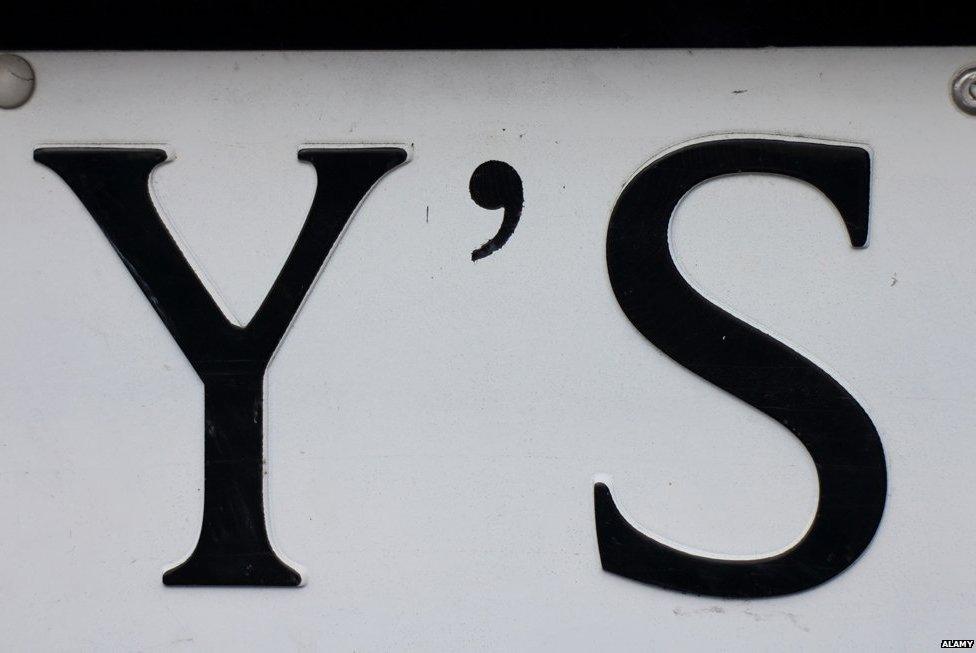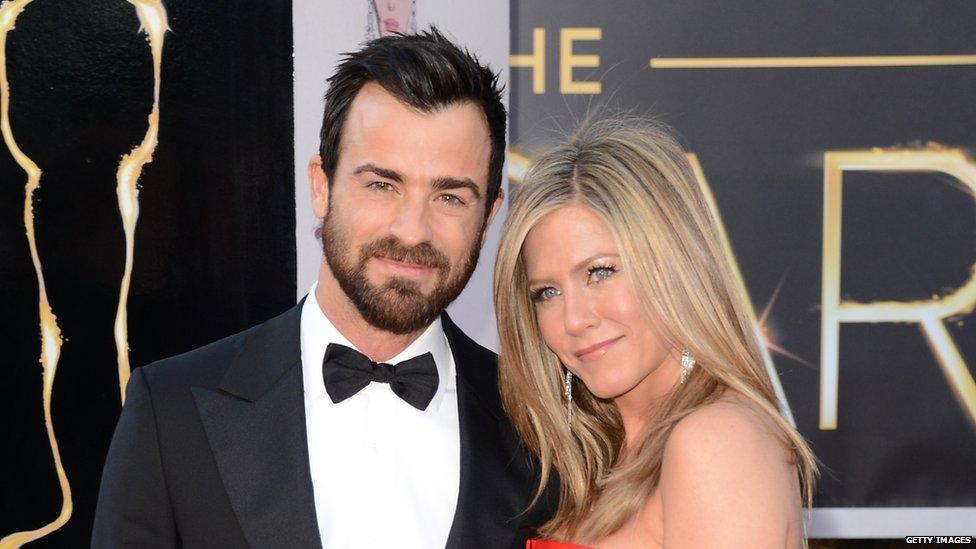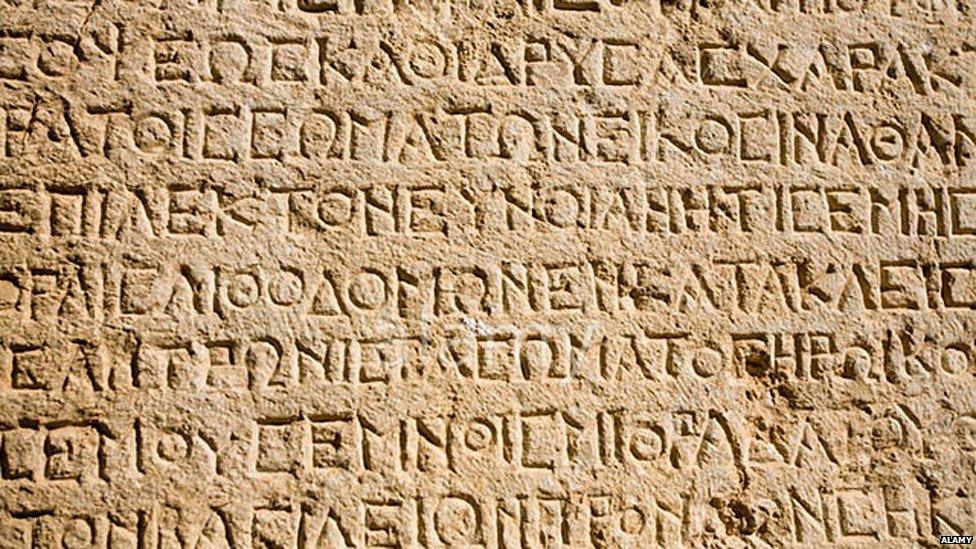The Vocabularist: The peculiar names of punctuation marks
- Published

Punctuation marks have been widely discussed in the news and social media recently - as they often are. Some are called straightforward things like "full stop" or "question mark" - where do the others get their peculiar names from, asks Trevor Timpson.
Following reports that Jennifer Aniston and Justin Theroux had wed, a fan tweeted, external "Hyphen or no hyphen?!? Aniston-Theroux? Or Aniston Theroux. Or just Theroux OMG Imagine."
"Hyphen" in Greek is a combination of hypo "under" and hen "one". The Greeks wrote it below the words.
As now, it indicated that two words were not to be read separately, but joined together.
It was one of the signs invented by the Greek grammarians of Alexandria in the second and third centuries BC to help people read the language.
That was before they realised that the best way to do this was to leave spaces between the words.
Greek scholars also gave the name colon "limb" to a sizeable section of verse or speech. Its first "o" is the long "omega". It's not the same as colon meaning part of your intestines - that comes from colon meaning food or digestion, whose first "o" is the short "omicron".

Following reports on the Aniston-Theroux marriage fans pondered whether the couple would adopt a joint name, and if so whether it would have a hyphen
A shorter piece of text they called a comma - meaning something which is stamped or cut. And both names became applied to marks that denoted them.
Coverage of Kids Company has revived comments, external about whether the charity should have an apostrophe in its name.
Greek scholars used an apostrophe as we do in words like can't - to show where something is missed out. It comes from apostrepho - "turn away".
It would take too long to explore the controversy, external over apostrophes in possessive nouns, external like kids' or kid's - whether they are needed and whether they are logical. It seems every statement on the subject is hotly disputed by somebody.
Feelings run high - vigilantes are reported to go out adding apostrophes to road signs where councils have left them out.
Interestingly, the word is itself a mistake - at least as most of us pronounce it.
We say apostrophe with four syllables, as though that was the Greek word.
There WAS a Greek word apostrophe. It meant turning aside to address someone individually - and gives us our word "apostrophize".
But the punctuation mark was called "apostrophos" - our word apostrophe is the French version of it. So perhaps we should pronounce it in the French way.
Appo-stroff. OMG Imagine.

The Greeks thought of ways of making their language easier to read before they thought of separating the words.
The Vocabularist

Subscribe to the BBC News Magazine's email newsletter, external to get articles sent to your inbox.